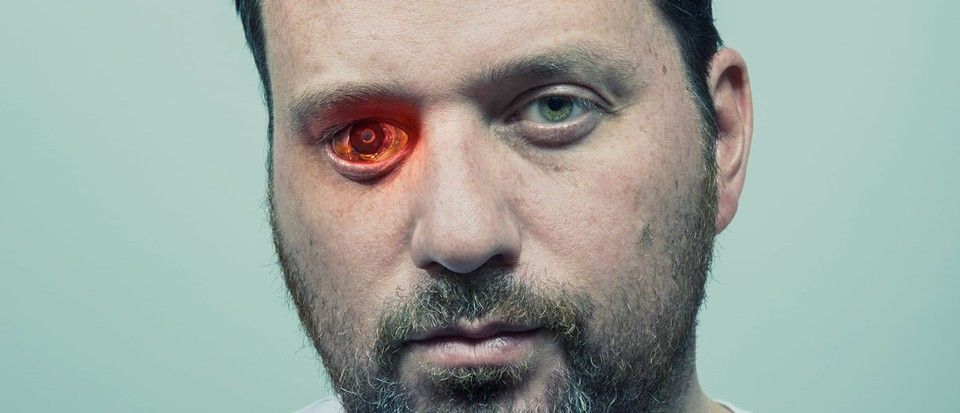“Go forth and conquer,” actor Kate Winslet says.
SpaceX’s Elon Musk is among the high-profile people celebrating Branson’s preparations for space.
“Go forth and conquer,” actor Kate Winslet says.
SpaceX’s Elon Musk is among the high-profile people celebrating Branson’s preparations for space.

“I haven’t seen anything like it,” scientist says of the flashy arachnid from Asia.
“People love to jump to conclusions what such a behavior is good for,” such as attracting prey or deterring predators, says Rainer Foelix, author of the book Biology of Spiders.
“Rather than to speculate, it would be better to study this phenomenon scientifically,” Foelix says.
“I haven’t seen anything like it,” adds Linda Rayor, a spider biologist at Cornell University. “Really, it is bizarre and interesting.”

A powerful solar storm is approaching the Earth at a speed of 1.6 million kilometers and this storm will hit the Earth either on Sunday or Monday. According to website Spaceweather.com, the storm that originated from the Sun’s atmosphere can have a significant impact on a region of space dominated by Earth’s magnetic field.
View of celestial lighting
Due to the solar storm, there will be a view of beautiful celestial lighting for the people living at the North or South Pole. The people living closer to these areas can expect to see beautiful aurora at night.

Humans are integrating with technology. Not in the future – now. With the emergence of custom prosthetics that make us stronger and faster, neural implants that change how our brains work, and new senses and abilities that you’ve never dreamed of having, it’s time to start imagining what a better version of you might look like.
From reality-enhancing implants to brain-controlled exoskeletons, breakthroughs in bio-tech have fuelled a new fusion of machinery and organic matter.

Breaking — Branson Beats Bezos to Space! Some history of the Virgin Galactic propulsion development, flight analysis and more background with Tim Pickens.
Tim Pickens is an entrepreneur, inventor, innovator, engineer and educator. He specializes in commercial space, technical product development and solutions, and business consulting and strategy for space and technical companies. Pickens’ 25+ years of experience in the aerospace industry, specializing in the design, fabrication and testing of propulsion hardware systems, has earned him a reputation as one of the industry’s leaders in these areas. Early in his career, Pickens served as propulsion lead for Scaled Composites on SpaceShipOne, winner of the $10 million Ansari X Prize. He also worked for small hardware-rich aerospace companies in Huntsville, and later supported the Virgin Galactic’s SpaceShipTwo venture.
You can support Galactic Gregs by supporting the sister channel Green Gregs by clicking the links below:
For your space habitat garden buy worms at greengregs.com!
See the Special Deals at My Patriot Supply (great space mission food): www.PrepWithGreg.com.
For gardening in your space habitat (or on Earth) Galactic Gregs has teamed up with True Leaf Market to bring you a great selection of seed for your planting. Check it out: http://www.pntrac.com/t/TUJGRklGSkJGTU1IS0hCRkpIRk1K



Data collected can be used to provide new insights into the evolution of the Kuiper Belt, and the larger solar system.
Trans-Neptunian Objects (TNOs), small objects that orbit the sun beyond Neptune, are fossils from the early days of the solar system which can tell us a lot about its formation and evolution.
A new study led by Mohamad Ali-Dib, a research scientist at the NYU Abu Dhabi Center for Astro, Particle, and Planetary Physics, reports the significant discovery that two groups of TNOs with different surface colors also have very different orbital patterns. This new information can be compared to models of the solar system to provide fresh insights into its early chemistry. Additionally, this discovery paves the way for further understanding of the formation of the Kuiper Belt itself, an area beyond Neptune comprised of icy objects, that is also the source of some comets.
WTF?! On Thursday the Security Service of Ukraine (SSU) reported that they had shut down a cryptomining operation in the city of Vinnytsia, seizing over 500 GPUs and 50 processors — and a bunch of Playstation 4s. Consoles built on 2013-era technology might not be great at mining, but they don’t need to be when you have 3800 of them.
Although the market for GPUs is starting to improve, and dedicated ASICs might be on the way to relieve demand, it seems that one group of enterprising cryptocurrency miners have turned to last-gen console hardware to get things done.
From the photos provided by the SSU, it looks like these consoles are of the PS4 Slim variety, the 2016 refresh of the original console from three years prior. Mostly obsolete for newer games, it’s not at all surprising that so many could be sourced en masse so easily.